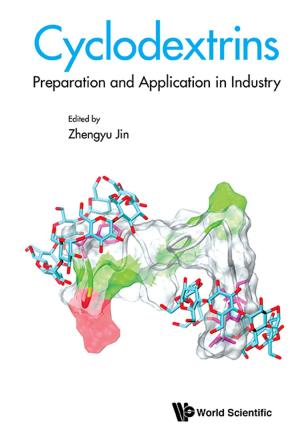Elaboration and Applications of Metal-Organic Frameworks
Nonfiction, Science & Nature, Science, Chemistry, Inorganic, Technology, Engineering, Chemical & Biochemical| Author: | Shengqian Ma, Jason A Perman | ISBN: | 9789813226746 |
| Publisher: | World Scientific Publishing Company | Publication: | January 29, 2018 |
| Imprint: | WSPC | Language: | English |
| Author: | Shengqian Ma, Jason A Perman |
| ISBN: | 9789813226746 |
| Publisher: | World Scientific Publishing Company |
| Publication: | January 29, 2018 |
| Imprint: | WSPC |
| Language: | English |
This title takes researchers in as well as out of the field of metal-organic framework (MOF) and then guides them on a journey to rediscover and rethink how these designer coordination polymers will influence the realm of materials science. This book opens with a look at a deeply controversial issue, MOF stability, which has plagued many systems, but ultimately has led to better materials that proved to be more robust allowing them to be investigated for multiple applications. This book successfully highlights many of these useful applications that MOFs are well adapted for. Because MOF components, inorganic and organic, can combine the best of both chemical domains, MOFs will improve our environment by removing harmful contaminants from the air and water, reduce the energy required to perform chemical reactions, partition hard to separate molecular mixtures, and form the next-generation of magnetic and electronic materials. MOFs will eventually be used for everyday activities — for monitoring or reacting to changing conditions. Readers of this book can then take note and implement MOFs in their line of research.
This title takes researchers in as well as out of the field of metal-organic framework (MOF) and then guides them on a journey to rediscover and rethink how these designer coordination polymers will influence the realm of materials science. This book opens with a look at a deeply controversial issue, MOF stability, which has plagued many systems, but ultimately has led to better materials that proved to be more robust allowing them to be investigated for multiple applications. This book successfully highlights many of these useful applications that MOFs are well adapted for. Because MOF components, inorganic and organic, can combine the best of both chemical domains, MOFs will improve our environment by removing harmful contaminants from the air and water, reduce the energy required to perform chemical reactions, partition hard to separate molecular mixtures, and form the next-generation of magnetic and electronic materials. MOFs will eventually be used for everyday activities — for monitoring or reacting to changing conditions. Readers of this book can then take note and implement MOFs in their line of research.















